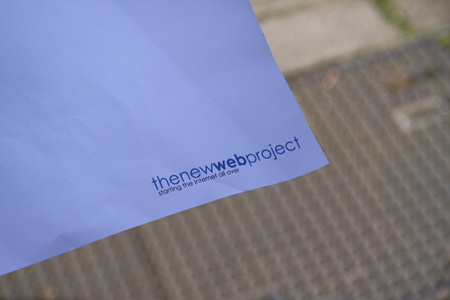Google is trying to set us up! – BREAKING NEWS – The New Web Project revealed before it’s release!
 Picture: part of the piece of paper we discovered.
Picture: part of the piece of paper we discovered.
WHAT WE DISCOVERED TODAY IS HUGE. Glad we made it back.. it was pretty exciting. We went to the Bilderberg Hotel in Amsterdam this morning as some Google employees should have a meeting today. We wanted to interview some of them and confront them with some critics heard over the internet about Google and the public’s privacy concerns. We decised to secretly film some of the members entering the building, which you’ll see later this week.. we try to get the video online as soon as possible.
Pictures: Google CEO Eric Schmidt arrives in his car in front of the Bilderberg Hotel Amsterdam.
Google CEO Eric Schmidt arrived first, obviously holding some very important papers, you can see them on the photos in this blog post. After that, several other members of the Google staff – we don’t know their names yet – arrived at Bilderberg’s.. WHAT THEN HAPPENED WAS REALLY REMARKABLE! One of them dropped his papers.. HE DROPPED IT, just in front of us, several meters from our standing point. They quickly got the papers together and went inside, but guess what……
THEY LEFT SOMETHING.. a piece of paper with some notes about what they are planning to discuss.. which made us VERY UPSET. The piece of paper made true what we already thought about the so-called ‘company who wants to make ALL information free available for everyone’. One of the Google credos is ‘Focus on the user and all else will follow’, well now they WILL do that, and are going too far also.
Pictures: Eric Schmidt walks anxiously to the entrance of Bilderberg.
Google plans a ‘New Web’
Google has plans to work together with Microsoft and the World Wide Web Consortium (which we discovered yesterday). But also Mozilla and AOL are involved. And.. because of the secrecy of all this (and the cars parked at Bilderberg’s) we believe the GOVERNMENT is involved too.
What are they trying to do? Well, the document tells us there must be some kind of a ‘New Internet’, where those 5 companies are working together to re-arrange the way the Internet works. We don’t know every detail yet, sorry. But this one is big, very big.
What we then discovered is a temporarily website about this project, it is called The New Web Project. What we can see now is just an announcement of ‘The New Web Project‘ that will be launced ‘soon’. When that actually happens.. we don’t know. But have you EVER seen the Google and Microsoft logos together on an official released website? We don’t. And we don’t think it’s a good idea to let two of the biggest computer networking companies working together, let alone 5 of them.. what will become of the smaller ones? Eaten by the big fish? Is this another prove of the monopolistic ideas Google has? And WHY are they meeting in Amsterdam? Is the Dutch government involved too? Or is it just a ‘random’ country like the meeting (probably about the same topic!) this week in Belgium?
We have discovered a lot more, but don’t want to tell everything, YET. Just wait for our video to be put online this week, we’ll discover what Google is trying to do fully. For now we just want you to check www.thenewwebproject.com every day to see what is going on around here. Please also follow us at this blog and Twitter for the latest updates!
Yahoo CEO Keeps Microsoft Deal Door Open, Shuts Out AOL
SAN FRANCISCO (Dow Jones)–Yahoo Inc. (YHOO) Chief Executive Carol Bartz said Monday the struggling Internet giant can “take on” rivals Microsoft Corp. (MSFT) and Google Inc. (GOOG), and she dismissed the idea of striking a partnership with Time Warner Inc.’s (TWX) AOL unit.
Bartz, however, declined to rule out a search partnership with Microsoft, which tried to buy Yahoo last year and remains open to some sort of deal that could bolster its search capabilities to compete with market leader Google.
“If you talk about search in general, you could partner with somebody,” she said in an interview with Fox Business News’ Liz Claman.
Bartz’s statement appeared to be her latest attempt to calibrate her position on Microsoft. She told an investor conference last week that Yahoo’s future would be “cleaner” if it didn’t strike any sort of deal with Microsoft, a comment that sent Yahoo shares tumbling 5%.
Bartz and Microsoft CEO Steve Ballmer have talked about forming a partnership on search but the exact nature of those discussions has not been clear.
Bartz also appeared to rule out any sort of partnership with AOL, which Time Warner recently decided to spin off.
“Yahoo-AOL would not happen anytime in the forever future,” she said. “Yahoo is a much stronger property in a different direction and there’s no sense confusing all of that.”
Bartz once again downplayed Microsoft’s newly revamped search engine, dubbed Bing, which for a day surpassed Yahoo in market share.
Yahoo is the No. 2 U.S. search engine, with 20.4% market share in April, according to market research group comScore. Microsoft continued to lag far behind with about 8% of the market, while rival Google Inc. (GOOG) increased its share by half a percentage point in April to 64.2% of the U.S. market, its highest level ever.
Shares in Yahoo closed down 2.7% at $16.19, while Microsoft fell 0.4% to $22.05. Google shares fell 1.3% to $438.77 and Time Warner was up 2.4% at $25.91.
By Scott Morrison, Dow Jones Newswires; 415-765-6118; scott.morrison@dowjones.com
Googles privacy issues in Japan
 Haha, they have to do it all over! Thousands of streets in Japan have to be photographed by Google Streetview.. again. Google said Wednesday it will reshoot all Japanese pictures for its online Street View mapping service. It will lower the cameras on its vehicles by 40 centimetres after complaints in Japan that the cameras were capturing images over fences in private residences.. why did no one thought of that before??
Haha, they have to do it all over! Thousands of streets in Japan have to be photographed by Google Streetview.. again. Google said Wednesday it will reshoot all Japanese pictures for its online Street View mapping service. It will lower the cameras on its vehicles by 40 centimetres after complaints in Japan that the cameras were capturing images over fences in private residences.. why did no one thought of that before??
Well, we think Google just wants to use the photo data to get insight of the little Japanese citizens. What are they doing in their back yards? Well, who knows. Fact is that Google HAS the photos in their database, ‘backupped’ it over and over again. So much for privacy in Gameboyland.
Hackers poison PCs that Google “March Madness”
Cybercriminals have begun poisoning Google search results to misdirect sports fans looking to participate in March Madness festivities, security firms say. Websense has found poisoned “search engine optimization” results mixed in with legit results for Google searches on “March Madness schedule,” “March Madness brackets,” and “2009 NCAA bracket predictions.”
This story explains how poisoned SEO results can re-direct your browser to a website serving up all sorts of malicious programs. SEO attacks have become very popular with cyber gangs who specialize in redirecting you to online pitches to buy worthless antispyware subsctiptions for $50. Most often the bad guys will also turn your PC into an obedient bot, and steal all of your sensitive data.
“Cybercriminals specifically take advantage of events like March Madness, because they know consumers are actively looking for brackets to download, the best teams to fill in and pools to participate in,” said Carol Carpenter, vice president of consumer marketing for Trend Micro. “These crooks are smart and know what people are searching for throughout the year. We advise all consumers that they should always keep their anti-virus software protection up-to-date to prevent all infections.”
Good advice. But keeping your antivirus subcription current won’t fully protect you. The bad guys have gotten very good at staying one-step ahead of the latest antivirus updates.
To truly stay safe while surfing the Internet you need to do your homework and be ready to give up convenience. There are numerous consumer tools designed to assess the goodness of the Web page you are about to click to, and tell you whether it’s safe. AVG, ScanSafe, McAfee and Enigma have consumer web scanning tools and services worth checking out.
And here’s a tip: WinPatrol offers very powerful protection. It’s a terrific free tool, popular with techies since it was created 10 years ago by Bill Pytlovany, one of the original designers of AOL and a longtime open-source practitioner. The premier version, called WinPatrol Plus, costs just $30 for a lifetime subscription, which includes all updates, and is designed for the average consumer. WinPatrol takes a snapshot of your Windows run registry, and from then on blocks and alerts you to any new executable program, such as a malicious backdoor, that tries to install itself on your hard drive.
By Byron Acohido









45 comments